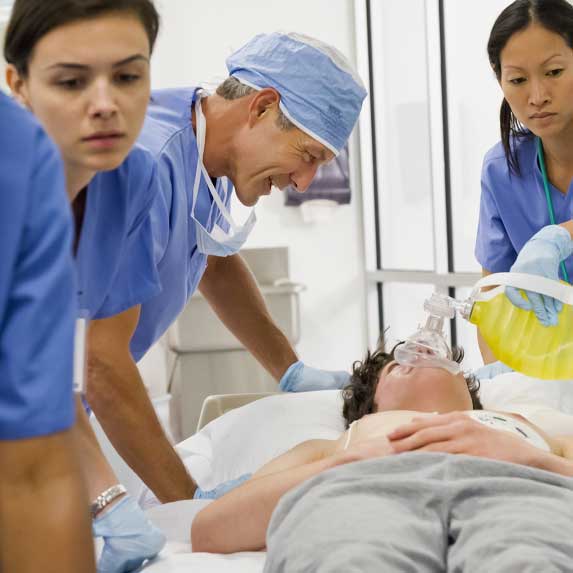|
Blended Learning HeartCode® BLS
|
Classroom BLS
|
|
|
HeartCode BLS uses a personalized adaptive algorithm that sets students on the most efficient path to BLS mastery. Students follow a continuously adapting learning path that is personalized by their own inputs: their performance and their self- reported confidence level related to each probe. The course content is presented in the form of self-directed learning content, probes, and Cognitive Assessment Activities.
The student has a choice of completing a pre-hospital or in-hospital contextualized track. After completing the online portion, students will attend a structured, Instructor-led hands-on session that focuses on meaningful skills practice, team scenarios, and skills testing. Where available, students may also complete the hands-on session with a HeartCode compatible manikin.
HeartCode BLS is the AHA’s BLS blended learning delivery method. Blended learning is a combination of eLearning, in which a student completes part of the course in a self-directed manner, followed by a hands-on skills session.
|
Instructor-led, hands-on class format reinforces skills proficiency
The BLS Instructor-led course teaches both single-rescuer and team basic life support skills for application in both prehospital and in-facility environments, with a focus on High-Quality CPR and team dynamics.
|
|
|
|
|
|
|
The online portion of HeartCode BLS can be completed in approximately 1 to 2 hours.
Time to complete the hands-on skills session varies from 60 minutes to 2 hours, depending on the experience of the student.
|
Full BLS Provider Course takes approximately 4.5 hours to complete, including skills practice and skills testing
BLS Renewal Course takes approximately 3 hours to complete, including skills practice and testing
*Course time based on 1 instructor: 6 students: 2 manikins
|
|
|
BLS Provider Course Completion Card, valid for two years
|
BLS Provider Course Completion Card, valid for two years
|
|
|
HeartCode BLS Online is WCAG 2.1 AA compliant.
|
Contact your Training Center to inquire about their facility’s accommodations.
|
|
|
|
|
|
|
|
|
|
|
- Includes in-facility and prehospital tracks; student chooses his/her track before starting the HeartCode BLS Online Portion
- Enhanced learning experience through eSimulations, life-like animations, video scenarios, and knowledge checks
|
- Emphasis on high-quality CPR including a team dynamics classroom activity
- Video-based course with real world scenarios
|
|
|
|
|
|
|
|
|
 Login
Login
